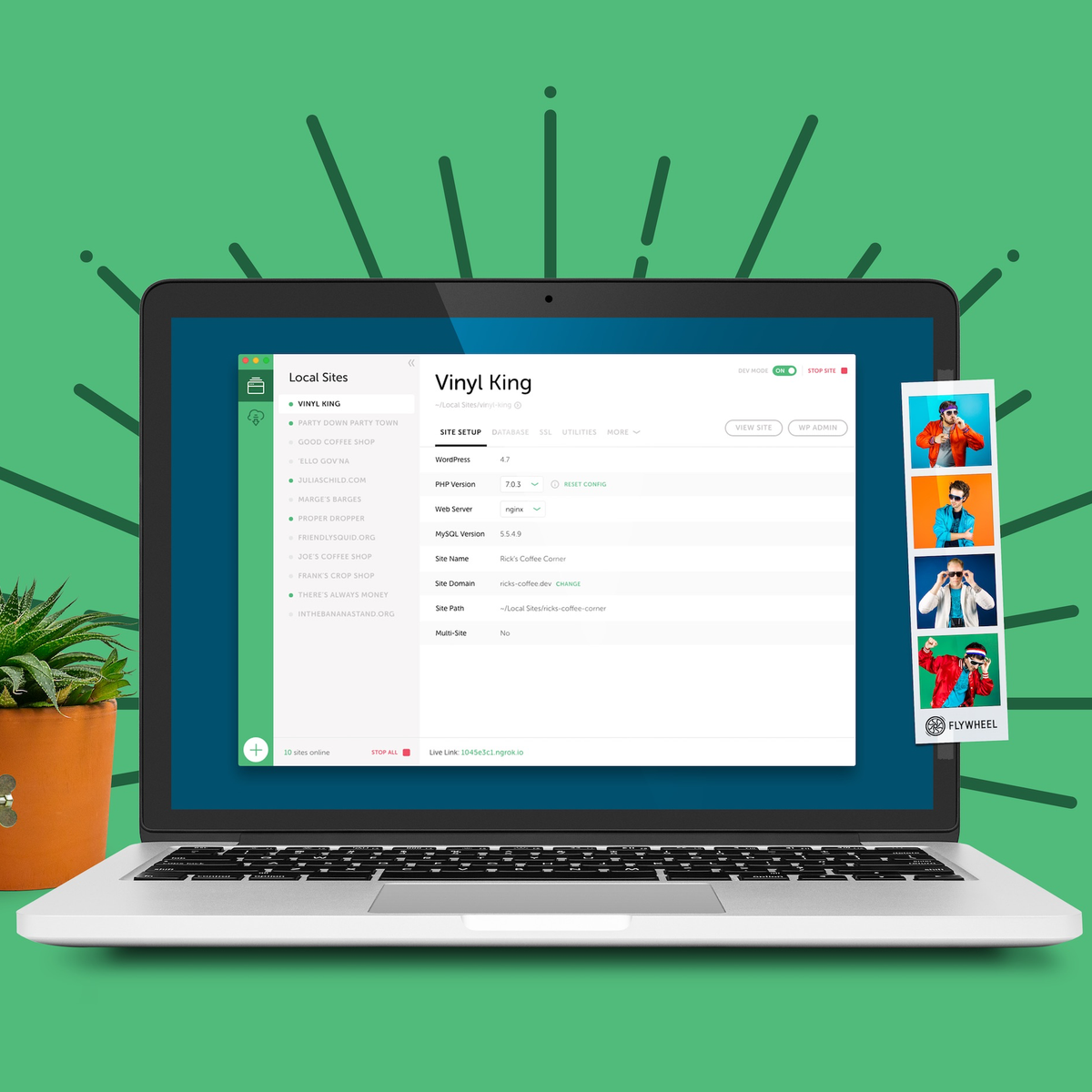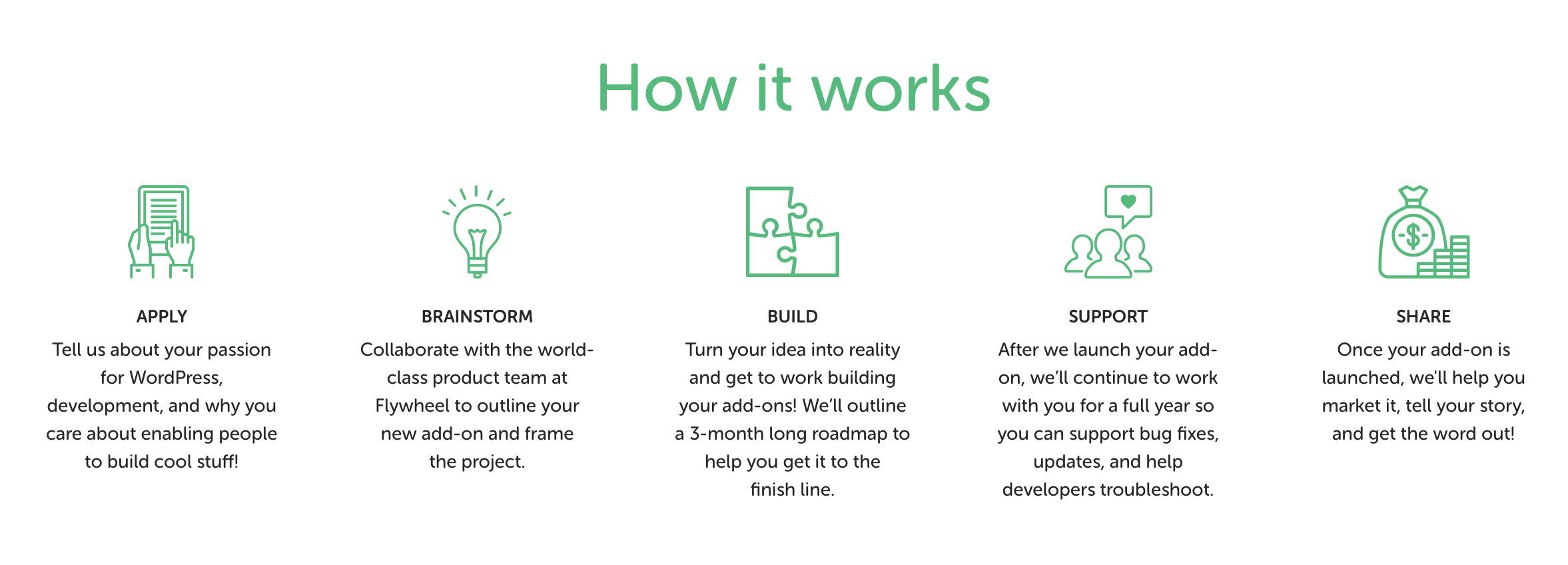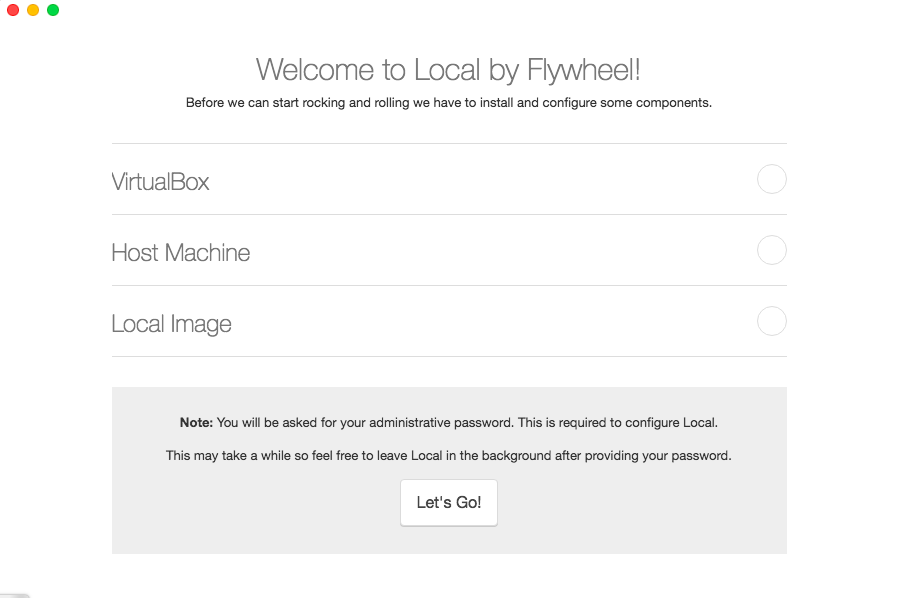I’ve had a long history of wrestling with local development environments. While I haven’t written much (none) about it, for the last year plus I’ve relied on Local by Flywheel to develop WordPress websites. The main reason: It’s been easy to use, and most importantly, super duper reliable. It’s also fast.

Quit Local; Open VirtualBox; Right-click on local-by-flywheel; Go to Close » Power Off; Right-click again and go to Remove and then delete all files; Re-open Local and go through the installation process; Click into the sites in Local and click on the “Restore” button when prompted; Test adding a new site. Thanks Clay and Flywheel for the. Local by FlyWheel is a free application that makes it easy to get a local WordPress environment up and running fast. In this course, instructor Morten Rand-Hendriksen helps you install and run WordPress locally on both Windows and Mac using Local. He then shows how to take advantage of all its benefits, including Live Link, local file access. User Friendly Installation. The installation of Local by Flywheel could not be easier. After an easy install, the creation of a new development site is a breeze. Three steps is all it takes to create a new development site with WordPress already installed. Author phg3a Posted on May 3, 2020 May 6, 2020 Categories Developer Tooling Tags amp, flywheel, lamp, local, local by flywheel, php, wamp, wordpress, xamp 2 thoughts on “Things I’ve Learned Using Flywheel Local”. In this post, we want to present you with an alternative: Local, formerly known as Local by Flywheel. Like other solutions, the program enables you to run WordPress on your computer instead of a server. It’s also free and very easy to use, making it more beginner friendly than more technical solutions.
Until recently that is. Periodically the app would get stuck when adding a new site. No errors reported it would just continually stay on provisioning – installing WordPress.

Flywheel to the rescue
A web search on the issue turned up a whole lot of not much. So while I didn’t expect much, I turned to the Flywheel forum and posted a support request (After searching there first, of course). To my surprise, Clay Griffiths responded in a couple of minutes. After a bit of back and forth, he reviewed my log file and found the issue:
May 22, 2018, 5:07 PM MDT - info: [worker: mysql-worker] /etc/init.d/mysql: ERROR: The partition with /var/lib/mysql is too full! ...
So the issue is that the VM disk space in VirtualBox was full. Here’s the options he offered up to fix. I chose Option B:
Local Flywheel 502 Request Error
Option A:

See Unable to connect to database on any site previously working working without issue
Option B:
Local Wp
- Export all of your Local sites by starting them in Local and then right-clicking on them and going to “Export”
- Verify that there is an exported archive for all of the sites
- Quit Local
- Open VirtualBox
- Right-click on
local-by-flywheel - Go to Close » Power Off
- Right-click again and go to Remove and then delete all files
- Re-open Local and go through the installation process
- Click into the sites in Local and click on the “Restore” button when prompted
- Test adding a new site
Thanks Clay and Flywheel for the great support. My issue is resolved and it seems like Local is running faster than ever.

Local Flywheel Github
- List 1
- List 2
- List 3
